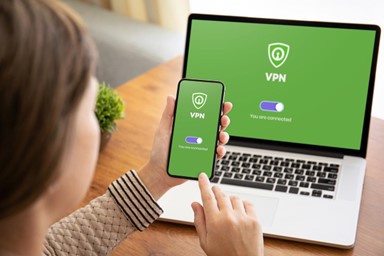VPNs (the Virtual Private Networks), which have been around for almost 20 years, are one of the most important parts of today’s security. Many big companies still use VPNs to make remote access safe, and millions of people use likewise products to protect their online personal privacy, use safely the public Wi-Fi links plus get around site blocks.
Based on the required protocol, a VPN could have different capabilities, speeds, or even security flaws. So, ciphers, as well as encryption protocols, are different ways to ensure browsing is safe, private, and mostly anonymous.
In this article, we’ll talk about the distinct kinds of VPN encryption, the most common VPN protocols, and the ciphers that make them work. So, you can be best positioned to select the protocol with the most security.

What is VPN Encryption & Its Working Principle?
VPN service providers must make it impossible for third parties to read, change, or replace the content of your given internet traffic. To do this, they hide not only all the data but also connection information that goes between their Web servers & your device by using VPN encryption.
Your included concepts are encrypted before they are transmitted over after you run a VPN encryption client and attach it to a server. Your messages are sent across the web and are decrypted when they get to the server you selected.
The messages then go back to the VPN client’s server, where they are encrypted again before being sent back to your device. Lastly, your VPN client encrypts everything so you can read the secure data.
Types of VPN Encryption
- Symmetric Encryption
- Asymmetric Encryption
- The Lowdown
VPN Protocols
To establish a secure connection between a VPN server & your computer, VPN providers must adhere to sets of digital guidelines called VPN protocols. VPN protocols essentially combine transmission protocols and encryption standards at their heart. Their major responsibility is to protect your data while it is in transit and at rest.
Most VPN service providers support the following protocols:
Types of VPN protocols
- The OpenVPN (UDP & TCP)
- The IPSec (IKEv2 & L2TP)
- The PPTP
- The SSTP
- The WireGuard
Here are some other protocols that only a small number of VPNs support:
- The SoftEther
- TheLightway
- The SSL & TLS
- The Catapult Hydra
- The SOCKS5
Each of these protocols has its own advantages and disadvantages. Users of a good VPN service can choose which protocols to use when connecting to a server.
VPN Encryption Ciphers
The algorithm that is used to protect data on control and data channels is called a cipher. Most of the time, ciphers and key lengths go hand in hand. So, Protocols are what set up the groundwork for a proper encryption tunnel, and ciphers are what actually encrypt your data.
The ones that VPN providers use the most are AES, Blowfish, and Camellia. But a lot more of them are used.
Types of VPN Encryption Ciphers
- The AES (Advanced Encryption Standard)
- Blowfish
- Twofish
- Camellia
- Triple Data Encryption Standard (3DES)
- Microsoft Point-to-Point Encryption (MPPE)
- Perfect Forward Secrecy
VPN Handshake
In addition to protocols and ciphers, VPNs use a technology called VPN handshake to make sure that your VPN connection is secure and working.
A handshake is how two digital devices connect for the first time. It’s basically a greeting where both computers agree on how to talk to each other and verify that they are who they say they are.
Types of VPN Handshake
- RSA
- Diffie-Hellman (DH) and Elliptic Curve Diffie-Hellman (ECDH)
How to Secure VPN Encryption & Connection?
It would be best if you now had a better understanding of how your VPN connection functions and protects you, thanks to the types of protocol, encryption, plus ciphers mentioned above. These suggestions might assist you in assessing the promises that providers make, whether you’re searching for a customer or business VPN provider.
Be skeptical. Although it’s usual for VPN providers to claim that their OpenVPN encryption like 256-bit AES is “military-grade,” this statement doesn’t actually tell you much. Your data won’t be secure even if AES-256 is a strong cipher if the other components of desired encryption are too fragile. Consider how they use secrecy, hash authentication, and distinct encryption settings for the data channel and control channel.
